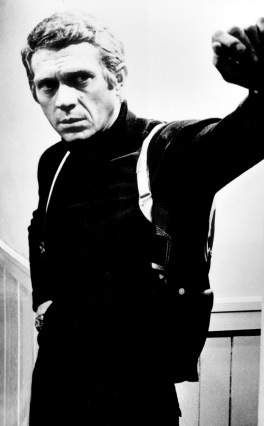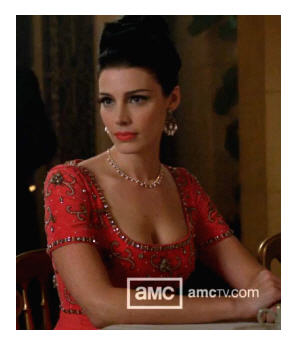Wednesday, May 9th, 2012
•
Writing

I had a dream that I was shopping for laptops, and that the salesperson was demonstrating how each of them had an “OH-HELLYEAH” key that, when pressed, emitted a really loud accordion chord. (It was somewhere near the “K” on the right hand side.)
I was just going to permanently drop this subject, but it was recommended by a close friend that I actually blog about this, so here’s the entry. My friend also recommended that I try my hand and designing the ubiquitous “OH-HELLYEAH” key, which I was willing to do, but it was surprisingly easy to find a ready-made “Accordion” key design (above). I think anyone frantically groping for the “OH-HELLYEAH” key would have no trouble recognizing the familiar icon. Presumably there could be a “quiet mode” or “airplane mode” that prevented quiet places like libraries from being constantly disturbed by the constant blasts of accordion music. (I also dreamed that The Daltonian—the student newspaper from my high school—and the Style section from the New York Times had merged.)
Wednesday, May 2nd, 2012
•
Movies / Writing
 There’s more to Bullitt than just that car chase, even if there doesn’t need to be—the famous 110-mile-per-hour Charger vs. Mustang duel (where the shocks blow out and the cars bounce over the hilltops like skateboarders) comes at you like the stargate in 2001 earlier that year. Bullitt is so 1968 it hurts, but, even during the Year of the Battlements, Steve McQueen manages to be the quietest action hero in history—he’s so low key he makes Dirty Harry look like latter-day Pacino (say, Heat-era Pacino) in comparison.
There’s more to Bullitt than just that car chase, even if there doesn’t need to be—the famous 110-mile-per-hour Charger vs. Mustang duel (where the shocks blow out and the cars bounce over the hilltops like skateboarders) comes at you like the stargate in 2001 earlier that year. Bullitt is so 1968 it hurts, but, even during the Year of the Battlements, Steve McQueen manages to be the quietest action hero in history—he’s so low key he makes Dirty Harry look like latter-day Pacino (say, Heat-era Pacino) in comparison.
Bullitt is all bleached-out San Francisco sunlit streets (viewed between garish street billboards and through warped, taped-together welfare-hotel windows) with jaded-looking crowds in ties and Foster Grants. Peter Yates’ handheld Arriflex tracks in on an identikit with a blank face, while McQueen (as Frank Bullitt) stands in front of an old-school Coke machine in his famous turtleneck-and-blazer, concealing his custom-made fast-draw holster (which was apparently copied from the real article used by legendary San Francisco homicide detective David Toshi, who was played by Mark Ruffalo in David Fincher’s Byzantine Zodiac—another great San Francisco movie, in which we watch completely-synthetic CGI “stop-motion” footage of the Transamerica building’s construction and Matte World Digital provides the period “Hair” billboards on the virtualized brick walls flanking the shooting crime scenes). Robert Duvall shows up as a cab driver, four years before becoming Tom Hagen (and four years before Woody Allen would anachronistically play a happy, contented San Francisco resident in Play It Again, Sam).
San Francisco is a cinematic dreamworld for me, going all the way back to my terrifying first viewing of Invasion of the Body Snatchers (1979), in which the Transamerica building is in practially every shot (back then, they owned United Artists). The big hotel that oily Robert Vaughn first appears in reminds me of that enormous wedding-cake apartment building from Vertigo. Bullitt gets pulled into a criminal conspiracy and has to deal with wounded partners and corruption, but it never makes him raise his voice (or fire his gun, until the end); even Gary Cooper looked like he wanted to talk but was preventing himself, while McQueen manages to make it seem like every sentence has to be pulled out of him by coercive force. He doesn’t have to get the girl; as established at the beginning of the movie, he’s already got the girl (Jacqueline Bissett, who walks around in the morning wearing nothing but his dress shirt from the night before, magnificently), an architect who repeatedly begs him to “let her in” but, like a Rolling Stones wife, knows when to back off and smile, eating shredded wheat while the front door slams on the soundtrack.
If Bullitt had been a product of the Joel Silver and Jerry Bruckheimer era, there would have been more of them, and Bissett would probably have returned (along with Norman Fell as Bullitt’s irritated boss, and maybe even Duvall as that cab driver—he would have gotten other jobs, like the Joe Pesci character in the Lethal Weapon sequels). Bissett would keep trying to get Bullitt to open up, and he would keep refusing and flashing his blue eyes at her blue eyes and putting on his turtleneck and leaving. They would keep trying to top that car chase, unless they were smart enough to just give up and try something else (maybe Harbor Patrol speedboats), but I doubt they would manage to be quite that smart; according to IMDB, McQueen worked it out with Peter Yates to tilt his head the right way so that viewers would know for sure that he was driving the famous “Bullitt Mustang” himself (most of the time). I would have gone to see all of them, over the next few years, watching Steve McQueen’s sideburns get longer (Pauline Kael pointed out that John Wayne’s ill-conceived mid-seventies cop thriller McQ gave away its star’s slavish need to get on what she called the “Urban Western” bandwagon simply through its title).
Russell Crowe may be a latter-day near-miss-copy of Richard Burton, and, in the same way, Daniel Craig currently functions as a reflected shadow of McQueen (and his James Bond owes a great deal to Kael’s “Urban Western” tradition). But there’s just nothing like the original; standing absolutely still in a doorway, McQueen conveyed more narrative force than a dozen impassioned monologues from a dozen other movie stars combined. And he could drive.
Wednesday, May 2nd, 2012
•
Writing

[Obviously, Spoiler Warning up to and including the most recent episode (Season 5 Episode 7, “At The Codfish Ball”)]
At the beginning of the season—i.e. before the Madchen Amick dream sequence, before Heinz (ironically, “Some Things Never Change”) and before the bordello sequence—I predicted that 1) Don will be 100% faithful to Megan and that 2) Megan will leave Don for another man, who may or may not be a client of SCDP but who will definitely be 2a) younger and better looking than Don and 2b) involved in show business (i.e. a Joseph Papp-type figure in the New York scene). This character (who will be utterly guileless and pure, and who will inspire Joan and others to flirt shamelessly with him whenever he’s at the office) will arrive in a tempest of narrative stormclouds, exactly like Paul Simon’s appearance in Annie Hall (in his brilliant turn as record producer “Tony Lacey”—Diane Keaton’s sublime “Seems Like Old Times” was Annie Hall’s “Zou Bisou Bisou”).
I’m even righter than I thought. At some point in the final two episodes of the season, there will be an anguished conversation between Don and Megan. He will point out that she can’t leave him/the firm because she’s an advertising prodigy; she’s “good at all of it.” And she will refuse his entreaties. She will start by telling him how important he was to her (mirroring Don’s speech to Faye at the same moment in Season 4); but will go on to say that, nevertheless, she must go off with New Younger/Better-Looking Show Biz Man because she’s just not happy unless she’s following her dreams. (This was the purpose of Emile’s speech to her this week: to plant this seed.) Peggy will play a decisive, morally ambiguous role in assuring Megan’s departure (from Don’s life and from the firm) because it leaves her, Peggy, with a clear run at the end zone, since Megan will be in the process of leap-frogging her at SCDP. This will be pre-saged by an event in which Megan is placed in a position of authority over Peggy, which will rankle her (Roger and/or Ginsberg will make a snotty, wry remark about “the boss’ wife” and a scene will end with Peggy alone in the dark with a scotch, brooding about what to do).
For bonus points, Megan will fix her teeth (like Paulina Porizkova in Anna, who was actually fixing her teeth).
All of this not only serves to augment and reinforce the predictions I made weeks ago (circa episode 2 or 3) but will uphold the Matthew Weiner technique of consistently inverting viewers’ expectations and placing the most sympathetic characters into positions where they must behave in morally questionable ways.
There’s nothing in the Bernard Malamud novel that presages any of this (so far as I know). If Don had been reading The Natural in bed, that would be totally different (remember Peggy’s discussion of Megan’s “home run”).
(The only objection to my theory that I take can seriously is the reasonable observation that it is not possible to find a man more attractive than Don Draper.)
![]()
 There’s more to Bullitt than just that car chase, even if there doesn’t need to be—the famous 110-mile-per-hour Charger vs. Mustang duel (where the shocks blow out and the cars bounce over the hilltops like skateboarders) comes at you like the stargate in 2001 earlier that year. Bullitt is so 1968 it hurts, but, even during the Year of the Battlements, Steve McQueen manages to be the quietest action hero in history—he’s so low key he makes Dirty Harry look like latter-day Pacino (say, Heat-era Pacino) in comparison.
There’s more to Bullitt than just that car chase, even if there doesn’t need to be—the famous 110-mile-per-hour Charger vs. Mustang duel (where the shocks blow out and the cars bounce over the hilltops like skateboarders) comes at you like the stargate in 2001 earlier that year. Bullitt is so 1968 it hurts, but, even during the Year of the Battlements, Steve McQueen manages to be the quietest action hero in history—he’s so low key he makes Dirty Harry look like latter-day Pacino (say, Heat-era Pacino) in comparison.